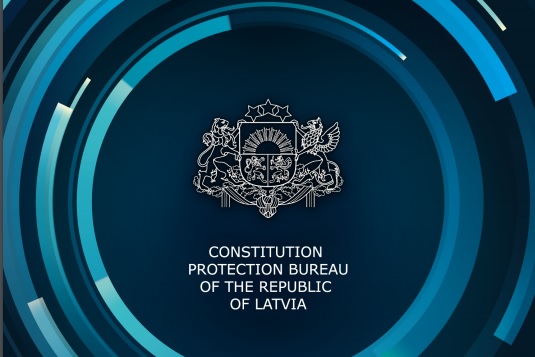The public version is available to read online and its 55 pages are dominated by one word: Russia. Indeed, much of it concerns what is happening domestically in Russia, in a manner that is familiar from any number of previous think-tank reports and summaries.
Only halfway through its total length does the report move on to consider the consequences of Kremlin policy more specifically in Latvia.
"Actions against Latvia are carried out by special services of several countries. The aggressive activities of Russian intelligence and security services pose a serious threat to the collective security of NATO and EU, and the national security of Latvia, while the activities conducted by special services of other countries over the past year are assessed by SAB as moderate and not having posed a direct threat to Latvian national security. The activities of the Russian special services against Latvia are within the scope of their general activities aimed against the West," the SAB report says, using mainstream media as its sources.
"In October 2018, media announced that Roman Tatarka, an employee of the Russian Embassy in Rīga, attended the same Military Academy as Anatoly Chepiga, involved in the poisoning of Sergei Skripal. Tatarka was recalled from Latvia in the beginning of 2019," SAB says.
"He first came to the attention of SAB as a Russian military intelligence officer during his previous posting in Latvia in 2010," it adds.
"SAB predicted high Russian interest on the 2018 Latvian parliamentary elections. No targeted campaign influencing the election results were observed," it says, adding that Russian services "were mostly using open sources to collect information on the elections and the subsequent process of forming the government."
"Media monitoring conducted by SAB did not indicate Russian attempts to influence the outcome of the 2018 Latvian parliamentary election through propaganda media," SAB says, suggesting "a long time strategy to create a negative and hostile image of Latvia rather than a coordinated informative support to any particular political party" was the intention.
However, there are one or two more interesting nuggets of information.
"In 2018 SAB plead [sic] the Minister of the Interior to include an individual representing a Russian company in Latvia in the list of persons to whom it is prohibited to entry into the territory of Latvia. The particular person was collecting information on Latvian nationals and their trips to Russia in accordance with tasks received from Russian special services," the report says.
The cyber sphere represents a particular threat, the report says, but gives few details or numbers.
"According to the information available to the SAB, cyber-attacks on Latvia have been carried out by both GU and FSB over the last few years. The attacks have been espionage related and in most cases have been directed against government institutions or individual officials working in the fields of home affairs, foreign affairs and defense."
However, in the matter of security clearances, some figures are given.
"In 2018, the SAB issued 588 security clearances fpr access to national classified information, 2388 security clearances for access to NATO classified information, and 2337 security clearances for access to EU classified information. Access to national classified information was denied in 12 cases, whereas access to NATO and EU classified information was denied in 4 cases."
There is also some interesting data on the use of authorized cellphone tapping which shows SAB is responsible for just 13% of it, compared with 38% by the State Police, 21% by the State Security Department and 10% by the Border Guard. Perhaps surprisingly, the KNAB anti-corruption police carried out a mere 1.5% of wire taps.
SAB was formed in 1995 with its main tasks including intelligence gathering, counter-intelligence and protection of state secrets. As the National Security Authority SAB also ensures protection of NATO and EU classified information in public institutions engaged in work with such information.





























